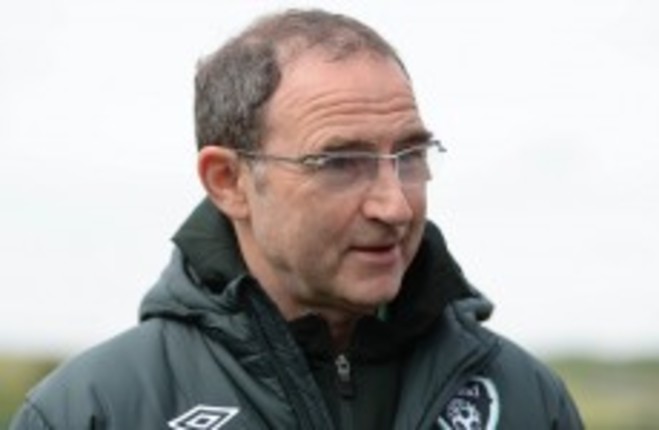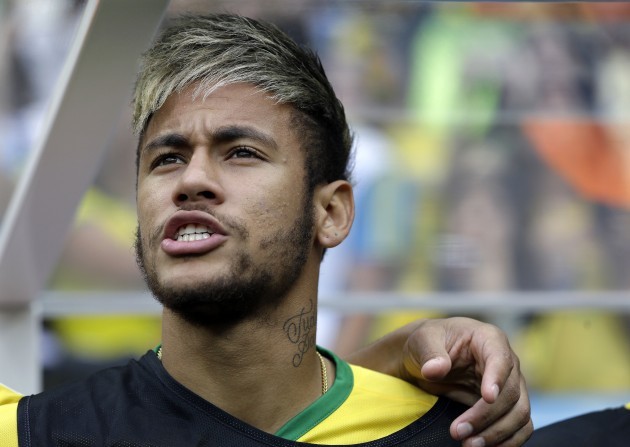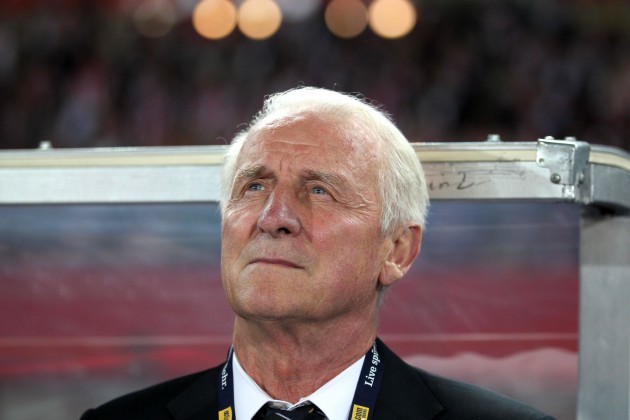Updating at 16.13
1. Ireland shouldn’t fear anyone
ONE OF THE most memorable moments from the last World Cup qualifiers from an Irish perspective was the depressing saga of temporary manager Noel King trying to insist that the 3-0 loss away to Germany at the end of the campaign should be looked upon positively.
This defeatist attitude was emulated, albeit on a far lower scale, two nights ago, in the form of a subsequently deleted tweet from the official FAI account, which suggested the team will be terrified at the prospect of facing the new world champions.
Yet whether it’s the stand-in manager or the person operating the Twitter account, self-belief and positivity should always be encouraged at every level of the Irish camp.
Time and again, this World Cup highlighted how limited but well-organised and highly motivated teams at a similar enough level to Ireland can thrive against the so-called bigger footballing nations — so for instance, Costa Rica defeated Italy, Chile overcame Spain and even Germany could only manage a point against Ghana.
Ireland should consequently take note and study how these sides managed to punch above their weight against supposedly more talented teams.
2. Squad depth is more important than ever
(Brazil were significantly hampered by an injury to star man Neymar)
Perhaps more than anything else, 2014 will remembered as the ‘substitutes’ World Cup’.
It was a substitute who scored the winning goal (Mario Götze), while a controversial substitution (Sergio Aguero for Ezequiel Lavezzi) was widely regarded as one that hampered Argentina’s chances significantly in the final, and one of semi-finalists Holland’s most important players was a substitute who appeared for less than one minute of regular game time (Tim Krul).
Hence, Martin O’Neill must realise that international football is more of a squad game than ever, with players increasingly injury prone, given the unprecedented demands on their bodies nowadays.
Germany, who were without one of their best players in Marco Reus, won the World Cup because they had the best squad at the tournament. Meanwhile, other contenders struggled due to a lack of depth and because a few of their best players were injured, half-fit or suspended at crucial times — some prime examples being Argentina (Di Maria, Aguero), the Netherlands (Van Persie, Strootman) and of course Brazil (Neymar, Thiago Silva).
Hence, Ireland need to ensure that their back-up XI is just as proficient and accustomed to the demands of international football as their first team, and judging by the recent 5-1 loss to Portugal involving what was a largely second-string Irish team, it is an area whereby vast improvement is urgently required.
3. Germany will be tough but not infallible
Realistically, no matter how well Ireland play, Germany will more than likely top their European Championships qualifying group.
And while Ireland players have been acknowledging this widely-held belief publicly, behind the scenes, they must be far more optimistic about the game.
If Ghana can draw with Germany, why can’t Martin O’Neill’s men at the very least do the same? Furthermore, Joachim Löw’s side were similarly unconvincing against other smaller footballing nations, needing extra-time to beat Algeria and only overcoming the US by a solitary goal.
Consequently, the Irish side must focus on Germany’s weaknesses rather than their strengths. Benedikt Höwedes is a sub-par left-back, their defence lacks pace, and while he has been largely fantastic at this World Cup, Manuel Neuer is not exactly immune to errors — after all, in the sides’ previous encounter in the World Cup qualifiers, the goalkeeper’s woeful mis-kick presented Anthony Stokes with an open goal from distance, which he unfortunately failed to capitalise on.
4. The 4-4-2 formation is effectively redundant at international level
(Former Ireland boss Giovanni Trapattoni was a staunch proponent of 4-4-2)
Under Giovanni Trapattoni, 4-4-2 was ubiquitous as far as Ireland were concerned. Alternative systems were attempted but swiftly dispensed with, leading to the exclusion of talented players such as Wes Hoolahan, who didn’t fit into the team’s rigid style.
By contrast, at this World Cup, none of the teams who reached the last 16 ever played 4-4-2, with all of them preferring to use one out-and-out striker or occasionally, a false nine.
Martin O’Neill, thankfully for the fans, has shown more of a willingness to experiment, with the Everton-style 4-2-3-1 looking particularly effective during the 0-0 friendly draw with Italy in Craven Cottage last May.
However, the manager still faces somewhat of a dilemma — playing one up front would almost certainly mean dropping Ireland’s record goalscorer Robbie Keane, who is widely believed to be unable to operate effectively as a lone frontman.
Can O’Neill afford to cast aside the veteran star who is still clearly a prolific goalscorer and therefore, one of the team’s most talented individuals?
5. Player adaptability is essential
Ireland need to start promoting player adaptability and ensuring young stars are versatile and comfortable with a variety of systems.
For instance, two players who shone at this World Cup — Philipp Lahm and Daley Blind (among many others) — were asked to play significantly different roles over the course of the tournament.
In addition, Martin O’Neill has previously been relatively dismissive when questioned as to whether Seamus Coleman could ever do a job on the right wing, yet this kind of experimentation needs to be fostered if Ireland are to maximise their potential on the international stage.
Moreover, on a similarly pertinent note, the teams who enjoyed the most success at this World Cup were all highly adept at playing different formations. Of the four semi-finalists, three altered their system substantially at least once during the competition. And tellingly, the one side of the four who stubbornly refused to do so ultimately got beaten 7-1.



